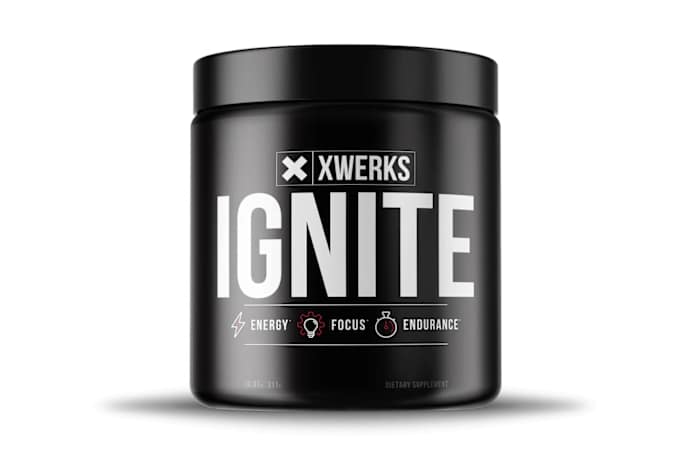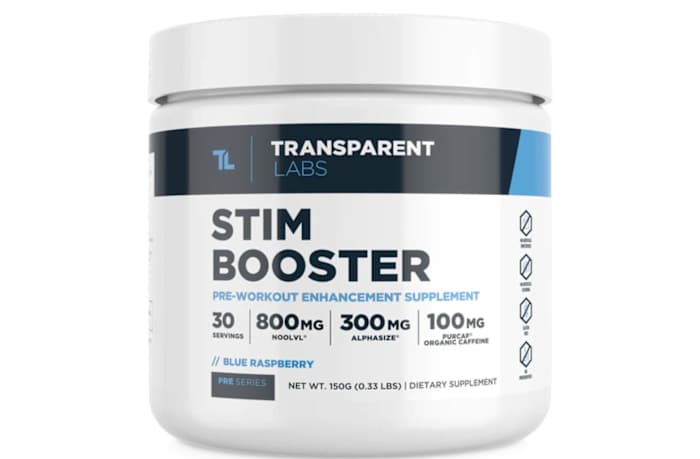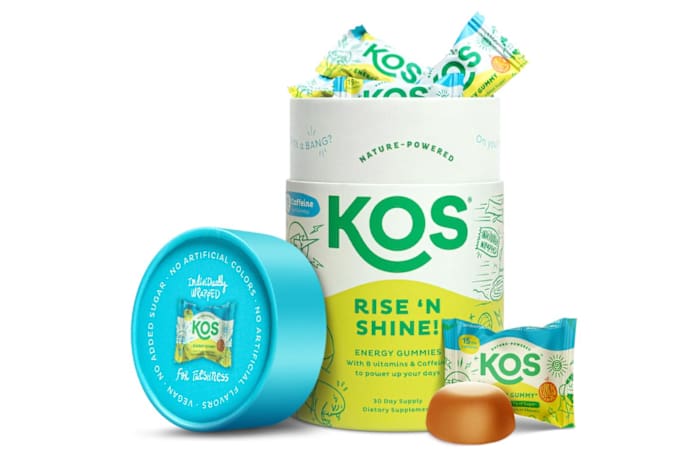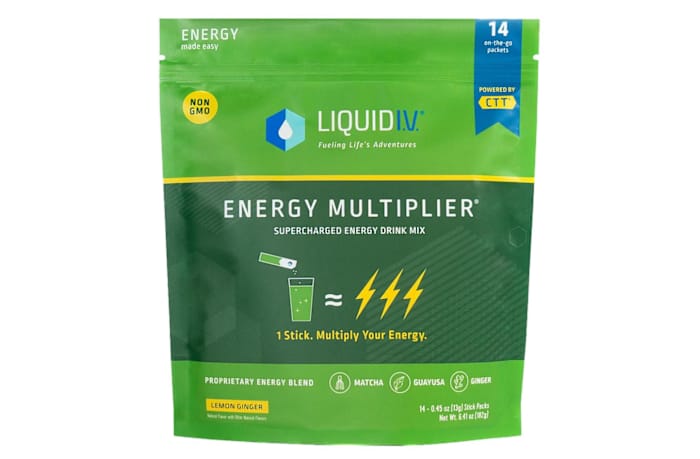The products featured in this article have been independently reviewed. When you buy something through the retail links on this page, we may earn commission at no cost to you, the reader. Sports Illustrated editorial staff are not involved in the creation of this content. Learn more here.
Caffeine is the most consumed psychoactive substance on the planet. In the U.S. alone, more than eight out of 10 adults enjoy a daily caffeinated beverage, coffee being the most popular choice. Even children regularly consume caffeine in the form of soft drinks. So given caffeine's ubiquity and touted health benefits, especially if you’re trying to optimize your athletic performance, can you really have too much? The answer from experts is a resounding “yes.”
The generally accepted guideline is for adults to limit themselves to 400 milligrams of caffeine per day. Knowing your upper limits for caffeine can be especially important for women who take a caffeinated pre-workout supplement, since the the recommended caffeine intake is typically lower for women, and the formulations of these products have a higher, more concentrated dose of caffeine than coffee.
However, because experts slightly differ as to the degree with which you should limit or outright avoid caffeine, we’re here to help you parse where you might fall on the recommended caffeine intake spectrum. The info we’re sharing has also been reviewed by nutritionist Pete Nastasi, who is also a frequent Sports Illustrated Showcase contributor and performance-driven dietitian. Having said that, always be frank with your healthcare provider about your diet, including your daily or weekly caffeine intake.
How Much Caffeine Is Too Much?
According to the Food and Drug Administration, healthy adults should max out at 400 milligrams of caffeine per day. It’s worth bearing in mind that caffeine content isn’t always obvious: Caffeine is present in foods like cacao, and even in small amounts in decaf coffee.
Another consideration: Every human body is different, and it may be wise to ingest central nervous system stimulants like caffeine in greater moderation if you tend to be more sensitive to the side effects. Those with a lower body weight will tend to be more sensitive to higher doses of caffeine as well.
Finally, breastfeeding and pregnant women are advised to limit their caffeine intake to 200 milligrams a day.
What Are The Symptoms of Too Much Caffeine?
Side effects of too much caffeine, according to the American Medical Association, can include elevated jitteriness, high blood pressure, faster heart rate, anxiety and insomnia.
You may have run the numbers on the total amount of the caffeinated coffee, energy drinks and pre-workout mix you consume, and realized you’re way above the recommended limit. First of all: Great job! Self-awareness is the first step to making healthy choices. Second: Don’t cut yourself off cold turkey. Caffeine withdrawal is no joke. Instead, to avoid negative withdrawal symptoms like headaches and irritability, slowly taper down your coffee consumption (or other caffeine vice) day by day.
Our Favorite Energy Supplement Brands
XWERKS Ignite
XWERKS Ignite has 150 milligrams of caffeine per serving, which is a nice Goldilocks amount: Not so much that you’ll have to skip your a.m. eight-ounce cup of coffee (which has about 90 milligrams of caffeine), but enough to get you pumped pre-workout. Ignite comes in four fruity flavors—Green Apple, Orange, Blue Raspberry and Watermelon—and the taste gets great overall feedback from consumers.
Transparent Labs Stim-Booster
Caffeine isn't the only substance that can help you get that pumped-up feeling. While Transparent Labs's Stim Booster does have 100 milligrams of caffeine, it also contains 1,000 milligrams of L-tyrosine, which can enhance focus and may be enough to light up your ability to do reps. Enjoy the Blue Raspberry flavor, naturally sweetened via stevia, or an unflavored powder. Personally, unflavored is always my preference in pre-workout powders, and it’s frustratingly hard to come by.
KOS Energy Gummies
Gummies are a fun and convenient way to get a caffeine infusion before a workout or workday. KOS Energy Gummies are friendly to vegetarians and vegans alike, since the formulation is free of dairy, shellfish, fish and gelatin. Beyond caffeine, ingredients include ashwagandha root extract (an antioxidant) and rhodiola root extract (to combat fatigue, anxiety and depression). If you are on a keto diet, just note that one gummy serving has four grams of carbohydrates. These make for a great addition to a pre-workout snack. KOS also has energy-boosting vitamins like B12.
Liquid I.V. Energy Multiplier
Liquid I.V. Energy Multiplier is a unique blend of matcha, guayusa (a relative of yerba mate) and ginger. Reviewers on the Liquid I.V. website said the blend leaves them energized but jitter-free, thanks to the calm promoted by L-theanine. The Lemon Ginger, Mango Tamarind and Yuzu Pineapple flavors are sold in convenient prepacks that you simply rip open and pour into water or your beverage of choice—no powder on your fingers from scooping required. If you’re avoiding artificial sweeteners, just note that the powders have 10 grams of added sugar.
Recommended Caffeine Intake FAQs
Can caffeine build up in your system?
Yes, caffeine can build up in your system over time. However, due to caffeine’s relatively short half-life (three to five hours), it won’t build up as steadily and dangerously as substances with a longer half-life. Still, you should always be cognizant of how much caffeine you have in your system at any given time, especially close to bed time.
How long do the effects of caffeine take to wear off?
The length of caffeine effects will vary based on your basal metabolic rate and sensitivity to caffeine, however typically, you’ll feel the effects within 15 to 45 minutes after consumption, and continue to feel the effects for up to three hours.
Why do I feel sleepy instead of more alert when I drink coffee?
There’s a few reasons you can paradoxically feel sleepy instead of alert after drinking coffee. Caffeine interacts with the adenosine neurotransmitter, which promotes decompressing and sleep. Caffeine stimulates by blocking those adenosine receptors in the brain. However, if your adenosine receptors are less active, caffeine can result in increased adenosine, making you feel sleepy rather than alert. Coffee is also a diuretic, which can lead to increased urination and dehydration, causing drowsiness.
Does caffeine consumption limit muscle growth?
No, caffeine in high doses (or low) does not limit muscle growth. In fact, caffeine consumption may help promote muscle growth if it helps you squeeze in more reps. Just be careful not to drink caffeine too close to bedtime, since caffeine can cause insomnia and sleep is when your muscles rebuild and recover after strength training.
What is the maximum amount of caffeine per day for athletes?
The maximum amount of caffeine per day doesn’t differ for athletes—athletes should still abide by the 400 milligram per day upper limit.
Do herbal teas have caffeine?
Some herbal teas, like chamomile, almost never have caffeine. However some herbal teas, especially those geared toward weight loss, have caffeine. For example, guarana is an herbal tea that has four times the amount of caffeine found in coffee beans.
Final Thoughts
Be it a shot of espresso, a spot of black tea or passing around a gourd of yerba mate, caffeinated drinks add a lot of pleasure to our existence, both socially and physically. Some of the health benefits of regular coffee ingestion include a lowered risk of heart disease and type 2 diabetes. The key: Monitor your daily intake, and don’t let caffeine slip above the upper limit, which is 400 milligrams a day for most adults.
In a similar vein, you also shouldn’t neglect to give yourself sufficient caffeine if it’s a part of your daily life, which is especially important to remember when you break your routine. Forgetting to have your cup of coffee or green tea can quickly send you spiraling when you’re already scatterbrained, such as when you’re in the process of moving or traveling. Always consult a doctor or dietitian about changes in your nutrition, especially if you’re using caffeine supplementation as a weight loss strategy.
Prices are accurate and items in stock as of publish time.













